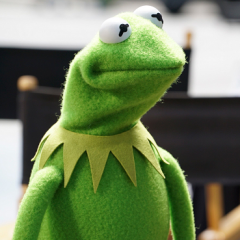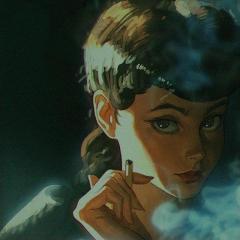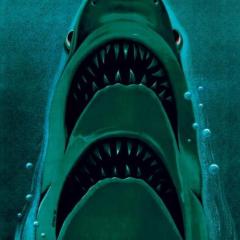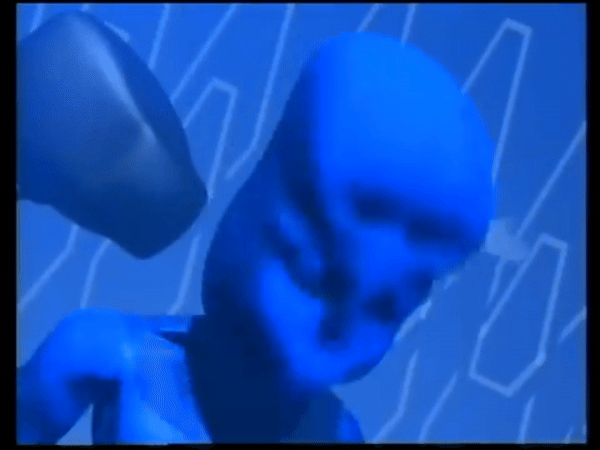Leaderboard
Popular Content
Showing content with the highest reputation on 06/09/13 in all areas
-
Hi all, It's possible that something like this has already been done; if so, I was not able to find it, at least within the Reviews section. I am introducing a topic meant to outline, in brief analysis, the case for categorizing certain John Williams scores by certain rankings. In doing so, I am opening up the thread for folks to comment on whether or not those scores are worthy of the rankings assigned to them (5-star, 4.5-star, 4-star, etc.). I will be attempting to review all of the officially-released scores, reflecting those I own on CD or other medium, but in any case, those that I have heard several times and feel comfortable commenting on. I have made a preliminary list of his scores and stratefied them according to my own taste, and have begun the fun task of creating cases in somewhat of a non-technical analysis to explain why I have assigned a rating to them. Feel free to comment on these selections and their ratings -- part of what I hope to do is generate some discussion on these scores, and inspire some listening to both the more famous and also lesser-known scores that I believe deserve some more attention. I may (due to time constraints) just leak these out in dribs and drabs, but I will try to do so in regular succession. I will admit that some of that hesitation is intentional in order to build suspense!...despite how self-important that sounds... So, without any further ado, I have completed my analysis of the first of what I consider to be John Williams Five-Star Scores: A.I. Artificial Intelligence (2001):No matter what one’s opinion of the film, a hybrid of the film-making sensibilities of Steven Spielberg and Stanley Kubrick, there is no denying the quiet solitude and manic rhythm both inherent in the score the maestro composed for the dystopic and ultimately conflicted film that became of that marriage. In fact, it is somewhat fitting that there are occasional references to some early twentieth-century modern composers (Ligeti and Stravinsky, primarily) and to the driving pulsating style of Philip Glass, as Kubrick himself had been rather fond of temp-tracking (and sometimes simply appropriating) classical music during the production phases of his films. There was no question, as a Spielberg production, that Williams would be the artist behind the music, but the creation of such beauty from what was at times a sterile film about the creation and then rejection of an artificial child as a replacement for a terminally ill human child to two grieving parents is truly remarkable. The score is essentially (like the film) of two minds: the quiet, meditative sections, focusing on solo voice or oboe (both mainly for David’s Theme, For Always, and in the Hide and Seek Theme), or cello (used mainly for Monica’s Theme); and the percussive steady drumming of the pursuit themes (present largely in The Mecha World, Abandoned in the Woods, and Rouge City, representing various chases or travels as seen in the film). The struggle between Mecha elements (David, the mechanical being) in the film and the on-again, off-again relationship with various organic life forms that interact with David throughout (Monica and Hank, the Flesh Fair ringleader, the Police, Gigolo Joe, Professor Hobby) is represented perfectly in the score, if not in the film itself. The film’s first third is filled with hints of David’s attachment to his new family, making the most of the Hide and Seek Theme, which is more prevalent in the score than I had originally thought, causing me to look for it even more in order to see where Williams may have inserted it elsewhere. The second act, finding David in the most perilous situations, prominently features the pursuit sequences, and the third act, which many moviegoers fault for their dissatisfaction related to the film itself, is where Monica’s Theme (For Always) shines the brightest (as heard in Stored Memories, The Reunion, and The Search for the Blue Fairy on the album), and brings a cohesiveness not quite so successfully accomplished by Spielberg himself in the visuals. A special nod would have to go to the marrying of visuals and music in the scene where David plunges from Professor Hobby’s office window into the swollen waters of Manhattan below. Overall, whatever one’s thoughts on the film, the score is one of the true gems in an already-full crown worn by the king of current film composition, Maestro Williams. Feel free to comment, and be sure to stay tuned for the next installment of John Williams' Five-Star Score Collection! Regards, AIFan1 point
-
Was it unsuitable for children? Damn right it was! Otherwise known as insta cool to kids.1 point
-
At this point I can't really justify paying for both - just too many expenses at once. Maybe there will be a London performance somewhere down the line. Karol1 point
-
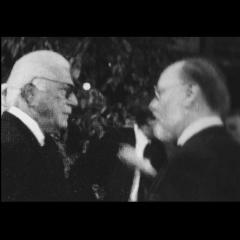
Howard Shore's The Desolation Of Smaug (Hobbit Part 2)
#SnowyVernalSpringsEternal reacted to chuck for a topic
You know what they say, "There will be BloodBoal"...1 point -
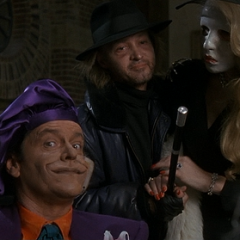
What Is The Last Score You Listened To? (older scores)
Wojo reacted to Gruesome Son of a Bitch for a topic
Alien and Pee-Wee's Big Adventure.1 point -
Tommy Lee Jones Will Write and Direct "The Cowboys" Remake for Warner Bros. ...and Zimmer takes over for Williams again?1 point
-
Jaws 2 is not really my cup of tea, but like almost everything else in that era of Williams' career, the execution is practically flawless. Thanks for detailing your thoughts, by the way, AIFan.1 point
-

The Hobbit Film Trilogy Thread
SafeUnderHill reacted to gkgyver for a topic
Yes, in case Theoden becomes possessed again.1 point -
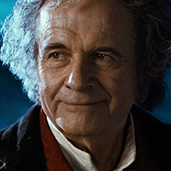
Howard Shore's The Desolation Of Smaug (Hobbit Part 2)
SafeUnderHill reacted to BloodBoal for a topic
1 point -
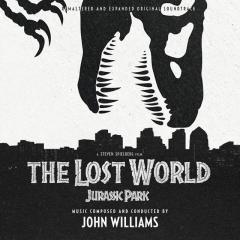
The Hobbit Film Trilogy Thread
SafeUnderHill reacted to Luke Skywalker for a topic
a bodyguard squire, like queen amidala's...1 point -

The Hobbit Film Trilogy Thread
SafeUnderHill reacted to Dixon Hill for a topic
I never really felt that it was supposed to be her literally "getting weaker," just that she was now mortal and bound to Middle-Earth, and so bound to the fate of the Ring.1 point -
Here's another installment of the five-star collection from JW: Jaws 2 (1978): Before easily dismissing this (by just seeing the title, presumably) as a derivative score from the extremely popular generator of the formula for summer blockbusters used and reused for the nearly forty years since, there is a case to be made that this score should in fact be included in the pantheon of five-star John Williams scores. Though it might be heretical to say so, there may even be a case made to put this score ever so slightly ahead of its predecessor.There is no great shame in saying so; this comparison clearly does not include the movies themselves, as there is a gulf of distance between Jaws and Jaws 2 in that category (not to mention the entirely forgettable – except for comedic purposes – and misbegotten Jaws 3 and Jaws: The Revenge). After all, many consider the scores to The Empire Strikes Back and arguably Indiana Jones and the Temple of Doom to be better than their predecessors because of the idea of taking the concepts and themes introduced in the original and building upon them and, in doing so, improving them. The Prisoner of Azkaban, detailed earlier in this thread, exceeded even the lofty heights of its two predecessors in the Harry Potter series (in my humble opinion). Anyway, to get back to the matter at hand, Jaws 2 might just be the biggest surprise of the five-star scores simply because it also adheres to the Goldsmith Principle (see the Hook analysis). The music in the score is to sea shanties and underwater adventures as the score to Hook is to swashbuckling pirate action and sword-fighting. The themes begin early and often, once again following either the naiveté of youth (immediately before they are scared / eaten / blown up / impaled / otherwise dispatched) or the tired exasperation of Chief Brody and his long-suffering wife, or just a fun day at the beach.Themes of note (pardon the pun, of course) include: Finding the Orca, which appears in the track of the same name, but also in many other early parts of the score, is an absolutely beautiful, dare it be said angelic, piece, creating the image of an underwater discovery of a sunken vessel during a scuba excursion. The use of the harp, not just for the performance of this theme, but throughout the score, is one reason the soundtrack is so beloved.It is employed to an even greater degree than the first film, and the score is better for it. It provides the calm, tranquil opening to a track, and a film, that will not spend most of its time very tranquilly. In fact, there is a sudden stop to the harp proceedings with a blast of horns and a Psycho-style staccato as the divers discover not only the wreckage of the boat, but the severely decomposed (and disfigured) bodies contained therein. In my opinion, the best use of the many references in film scores of the Psycho stabbing theme. On the official soundtrack, the Menu theme is up next, echoing, to some degree in sound (and certainly heavily referenced in the film), the Promenade theme from the original Jaws, but this track even one-ups the Promenade in terms of the theme itself, the build-up, and the rousing finale. The sheer majesty of its presentation of a classical piece is humorous in the same way that the Promenade was so jarring: not only would it not be expected in a horror film (which this was considered at the time – the slasher genre was somewhat in its infancy), but refined classical music shown against a foreground of rather slovenly vacationers engaged in various activities not normally seen in a stuffy concert hall is just plain funny. The next major theme is the Catamaran Race, which is (again, my opinion) the greatest single track written for any of the Jaws films. Williams perfectly captures the open-sea abandonment and sheer joy felt by the teens engaged in the race, the majesty of miles and miles of uninhibited water, and uncharted boundaries explored in the race between a couple of cobbled-together catamarans. The theme is instantly memorable, and starts off in a very similar vein as Out to Sea from the original Jaws. It soon parts ways in order to fit the fast-paced competition of the racers, upping the volume to match. The strings take on the vast proportion of the theme, but flutes jump in as well. The bridge section of the theme and the variations heard later on are just the icing on the cake, as well is the absolutely can’t-miss appearance of the original Jaws’ Shark theme, the familiar dum-dum-dum-dum up-and-down of the cellos, which breaks in at 0:10 of the track on the OST, and actually appears several times thereafter by different instruments in the background of the piece. This winking acknowledgement of the underlying danger that lurks beneath, while the teens frolic on the surface above, is but one of the great features of this score. There are also smaller themes related to Chief Brody, who didn’t have a (recognizable) theme in the original film, but is now given a mournful lament of sorts in the track “Brody Misunderstood”, which actually seems to recall the “Ben’s Death” tribute in the soundtrack to A New Hope from the prior year. However, the track ends on a seemingly hopeful note, forming into a determined new direction for the chief of police on Amity Island (and sounding a bit like The Patriot?). Much of the remainder of the score really has to be experienced, from the cue “Toward Cable Junction” (reminiscent of the closing credits from the original), to “Sean’s Rescue” (great action and tension cue, but the flute brings Princess Leia to mind), and the unbearable tension of the last attack of the beast in “The Big Jolt!” To top things off, the “End Title, End Cast” cue is great fun, starting with a theme previously unheard to start it off (as father and son float off into the sunset) – in fact, I’ll have to watch the movie again just to see if it’s featured elsewhere in the film, because it would make a great case for releasing a complete score at some point! The cue then ends on a last rendition of the Catamaran Race theme. It really is a great way to end the album, and the album itself is one of those examples of excellent programming, looking back on the flow of the tracks. It presents a limited, but effective, summary of one of the great scores of the Maestro’s oeuvre! AIFan1 point
-
Here's the next installment in the Five-Star Collection of John Williams' scores: Hook (1991):The premise itself seemed at least a little half-baked, and the ultimate result (following years of speculation that it might actually be developed and released as a full-blown musical, presumably featuring at least partially-composed music from John Williams) was about as half-baked as those expectations would be. While harmless enough as a film, and featuring hammy performances all around (Dustin Hoffman, Robin Williams, and Bob Hoskins have a steady diet of scenery throughout the film, but at least appear to be having fun making the film), the film will never be drafted into the AFI hall of fame for movies. However, in a rare Goldsmithesque situation for the Maestro, in which a film of somewhat dodgy quality receives an entirely outsized score, Williams generated an absolutely amazing score that functions as a stand-alone achievement, something requiring no visuals other than what the listener can conjure in his or her own mind: swashbuckling and swordfighting, adventures on the high seas, danger and kidnapping, childhood memories, and so much more. It is speculated that many of these themes were likely floating around in the composer’s head long before the movie because of its intriguing history as a potential musical since the mid-1980s. Regardless of the source of the great themes and even passing motives that occur within both the broad strokes as well of the subtleties of the score, it stands as perhaps the most varied of the scores produced by Williams, arguably since the score for The Empire Strikes Back.In taking a cursory overview of the important themes for Hook, the listener will note the spectacular main these as outlined below. The Hook theme, as played immediately (at least in the originally-released soundtrack, in Prologue), is a swashbuckling that both increases in volume as well as range. One can imagine the young (or, eventually, the old) Peter Pan ascending the masts to this theme while conjuring Erich Korngold’s scores of old.Its fast three timing (probably written in 6/8 time) is reminiscent of a jig or quick waltz, but in any sense, it conveys action and adventure in a way not implied since Williams’ Raiders March had debuted ten years earlier. The Hooknapping theme (hardly implying that Captain Hook is napping…har, har) plays a little further into the soundtrack, as the adult Peter Banning’s children are kidnapped by the nefarious forces of Captain Hook as they sleep in Granny Wendy’s house in London. This brazen act is accompanied by swirling strings that, similar to the Hook theme, spiral up and down much like the roiling waves that are represented musically at so many points in this score. French horns and trombones belt out the main Hooknapping theme, which continues for a quite a long line. Although the track settles on a quieter note (and in a similar fashion to techniques used later in Jurassic Park), the undercurrent rumbling provides a disquiet that helps to segue into the next section of the movie. The Childhood theme (first heard in Flight to Neverland, right after what might be called the Scheme theme, used later for Smee) and featured more prominently in Remembering Childhood, is a wonderful and soaring ode to the happy memories of childhood. It plays like a fast two (probably cut time), staying briefly on a high note and then alternating and staying a few steps lower, then jumping back up before descending for a little while, only to climb back up again and end triumphantly. It begins and ends (in the passage contained within Flight to Neverland) with the horns and brass, a rather inauspicious landing for which to pick up on the confused nature of Banning in the next scene when he realizes he’s not in Kansas anymore. Immediately in the score following this flight is the Pirate theme, signaling the inhabitants of this strange new world of Neverland. This theme is more technically a jig than the Hook theme mentioned earlier, at least in the way it starts, which appears to be on a pan flute instrument. It begins as a jovial, marching tune, fit for a motley parade of piteous (because of their clearly post-inebriated state) pirates, but then shifts almost entirely (at about 1:20 of Presenting the Hook) to become a jaunty, major-chord version of what is actually a much darker theme that still ends up with a smash-bang ending.This theme ends up repeating itself several times during the overall score, and surprisingly can fit into whatever context it is placed. It remains a truly memorable theme in the Williams canon. The Lost Boys theme is another infectious ditty (okay, that word somehow seems inadequate in this score!) that pops up immediately following the “rescue” of Banning by mermaids and his deposit upon the island of Lost Boys. In some ways it’s a march, but in other ways, it’s a kind of sassy call-and-echo format, with tubas and other low brass beginning the theme and passing it along to double-stopping flutes and other high winds with the response. While the theme on the soundtrack can certainly be taken as a stand-alone experience, it also matches the film experience action-by-action as Peter tries vainly to dodge the attacking (well, more like teasing with a bit of an edge) Lost Boys. By the end of the game, Peter finds himself entirely out of breath and ready for surrender against the skateboarding hordes. Bits and pieces of this theme also play out in the Final Battle cue at the end of the movie, rather appropriately. The You Are The Pan theme arrives in the film soon after the chase by the Lost Boys.In attempting to ascertain whether this middle-aged, paunchy, asthmatic man in front of them is the Peter Pan of myth and legend in Neverland, this majestic chorale accompanies the efforts of one of the youngest of the Lost Boys to lead that effort. In composing that rivals the best chorale parts of Empire of the Sun or Return of the Jedi preceding it, the Maestro powers through and exceeds the images on screen to send shivers down the spine of the listener, especially as the piece reaches its final crescendo in the finale. One almost wishes there had been a way to insert this into a more deserving feature, but one needs only refer to the Goldsmith Principle outlined above: just as the worst criminal gets a defense, even mediocre films deserve the best effort. The Banquet theme is one almost not mentioned because it does not appear enough in the film; as such, it is really more of a motif than an outright theme, but why quibble over small definitions? Besides, it is a simply wonderful theme that acts as an enormous sigh of relief right in the middle of score, like an intermission in the movie itself. (For those of you old enough to have purchased this score originally on cassette tape, this piece literally closes out side A, so maybe that’s why I see it as an intermission.) Again, it is a royal march from the French horn (Williams really loved that instrument in this score!) and euphonium and other low brass playing in their higher registers that is a celebration of jobs well done and perhaps even a slight acknowledgement of gluttony. The concert piece of the Banquet theme also features some solo performances from the top and bottom of the orchestra, adding to the flair and flexibility of this theme.In the film, the music matches perfectly to the film, as the crescendo reaches its zenith just as a thrown coconut is sliced in half by the rejuvenated Pan himself, and immediately decrescendos to almost complete silence, with a coconut half spinning on the banquet table. Returning back to something mentioned earlier, the Scheme theme is a personal favorite of many fans of the score, largely because it is so sneaky and sounds like it would be incredibly fun to play – perhaps even more so than the experience of listening to it. It starts out quietly, runs for four lines building up the mania and deviousness as it continues and builds, and passes the theme along to different instrumentations as it goes.(See the Williams on Williams: The Best of the Spielberg Scores album for the best version of this theme, under Smee’s Plan.) The theme appears several times in the movie: Flight to Neverland (as already mentioned), Smee’s Plan, Hook’s Lesson, and many other places. The most devious part about it is the way it burrows into one’s mind after listening to it! When You’re Alone is the closest segment within the score that resembles a song that would have been written for a Hook musical, and possibly was in fact written for the musical before that idea was abandoned in its infancy. In the film, it functions as a lullaby sung (unsteadily) by Banning’s daughter while in the care of her captives in the film, but it also is featured in Remembering Childhood in an instrumental passage, and in bits and pieces throughout the latter half of the film.It is a beautiful ode to childhood friendship in its lyrics (written by Leslie Bricusse), and its instrumentation also suits the parts of the film in which it is spotted as well. If the themes listed above are not enough evidence that this is a five-star score, nothing will, but there are actually many more, as well as little-used (but much-cherished) motives that are present and combine to make this score even more than the sum of its many, many parts. AIFan1 point
-
Alright, here is the second installment of the Five-Star Collection from John Williams (in my opinion): Harry Potter and the Prisoner of Azkaban (2004):For the third installment of the Harry Potter movie series (based on, it should go without saying, the popular novels based on the same young magician), it is not clear as to whether the director’s instructions to John Williams were to forget everything that came before (the maestro had, of course, composed the scores to the wildly successful and identifiable first two films in the franchise up to that point).However, that is the direction the composer took, choosing to take a road not previously traveled and instead infusing the third film with an entirely new feel to match the new look of the movie visuals (the first two films had been masterfully helmed by Chris Columbus, but the studio had selected Alfonso Cuaron to direct Prisoner of Azkaban).The new film would have not just a darker look, representing the beginning of the end of childhood for the main protagonists, but would also focus on the characters’ pasts, mainly Harry Potter’s history and that of his parents’ adventures while battling He Who Shall Not Be Named.Whether this was a direct inspiration for Williams’ concentration on more medieval predecessors to today’s orchestral instruments to craft the score, or simply his response to the look and feel of the film under Cuaron’s hand, the results were that the series was given new life with this magnificent score, proving that a series, and a composer, are never too old to receive new breath and learn new tricks. The first of the new themes, and one which is referenced frequently but by no means to any tiresome extent, is what could be called the Parents Theme (featured in its concert version as Window to the Past).This utterly beautiful and heartbreaking tune, actually consisting of several lines, is referenced in the movie generally when Harry is thinking about his parents, or when his parents are mentioned (most memorably when he has a discussion with Professor Lupin at a crucial point in the movie).It is played variously by solo recorder, flute, at first interwoven with and then played by lush strings, clarinet, and then solo French horns (as a soaring and soulful conclusion) all within Window to the Past, as it is passed along to various instrument groups, and later is brought up gloriously in the Finale.The officially-released soundtrack does not do it justice as nearly as the full film score does, but it is enough to send shivers down the spine every time. The second main theme featured a couple of times in the film is that of Buckbeak, the flying creature attended to by Hagrid through the film, and who forms somewhat of a bond with Harry especially.The concert piece (Buckbeak’s Flight) features a rousing start on banging timpanis, and then launches right into an upward trajectory, much like the beast himself.The bassoons start cranking away, but then the flutes provide a woodwind launch to an eventual handoff to beautiful violin music at the top of the register, and that’s when the theme really gets going into what seems like a cut-time description of what it must be like to fly on this mythical winged horse.Off-beats are accentuated by flute decoratives, and before the listener knows it, he or she is let down gently by a flute descent.It is the closest that Williams has come to putting flight to music since either Hook, SpaceCamp, or E.T. (take your pick). The third main theme is one that was composed well enough in advance that it was used for many of the previews for the film: a little medieval music played in chamber style that is referred to in the soundtrack as “Double Trouble”, and it is also featured prominently at certain points in the soundtrack, also on different and entertaining groups of instruments (most amusingly in “Hagrid the Professor”, which starts with a kind of riff on the theme, and then the more straightforward version of it; it is also beautifully used in a kind of bedtime nursery motif version in “Secrets of the Castle”).That Williams could essentially just pull this out of his cap for the third film in a series where he could have just mailed in more of the same of the first two scores is a tribute to his true genius and it demonstrates just how much he must be the envy of so many in the field.It is utterly astounding how pliable this theme is as well. There is very rare used material, and there are many other minor themes making appearances that cannot even begin to be analyzed here (I’m thinking specifically of Aunt Marge’s Waltz, The Whomping Willow, The Snowball Fight, The Patronus / Dementors Theme), and probably the best Quidditch music Mr. Williams wrote for the series.All in all, clearly a five-star effort belying the true inspiration he received from this film. Comments? Questions? Feel free to post! AIFan1 point
-
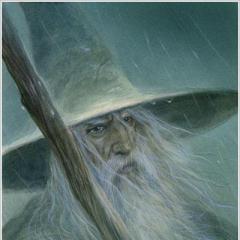
Missouri Breaks 2CD Complete Score (SOLD OUT in 72 hours!)
Luke Skywalker reacted to Incanus for a topic
Verse of the Discs Three discs for the greastest fans under the sky, Seven for the completists who here endlessly moan, Nine for late comers,doomed them from eBay to buy, One for the Administator on his hundred disc throne, In the land of JWFan where all the soundtracks lie. One disc to rule them all, One disc to find them, One disc to bring them all, And in the dorkness bind them, In the land of JWFan where all the soundtracks lie.1 point

